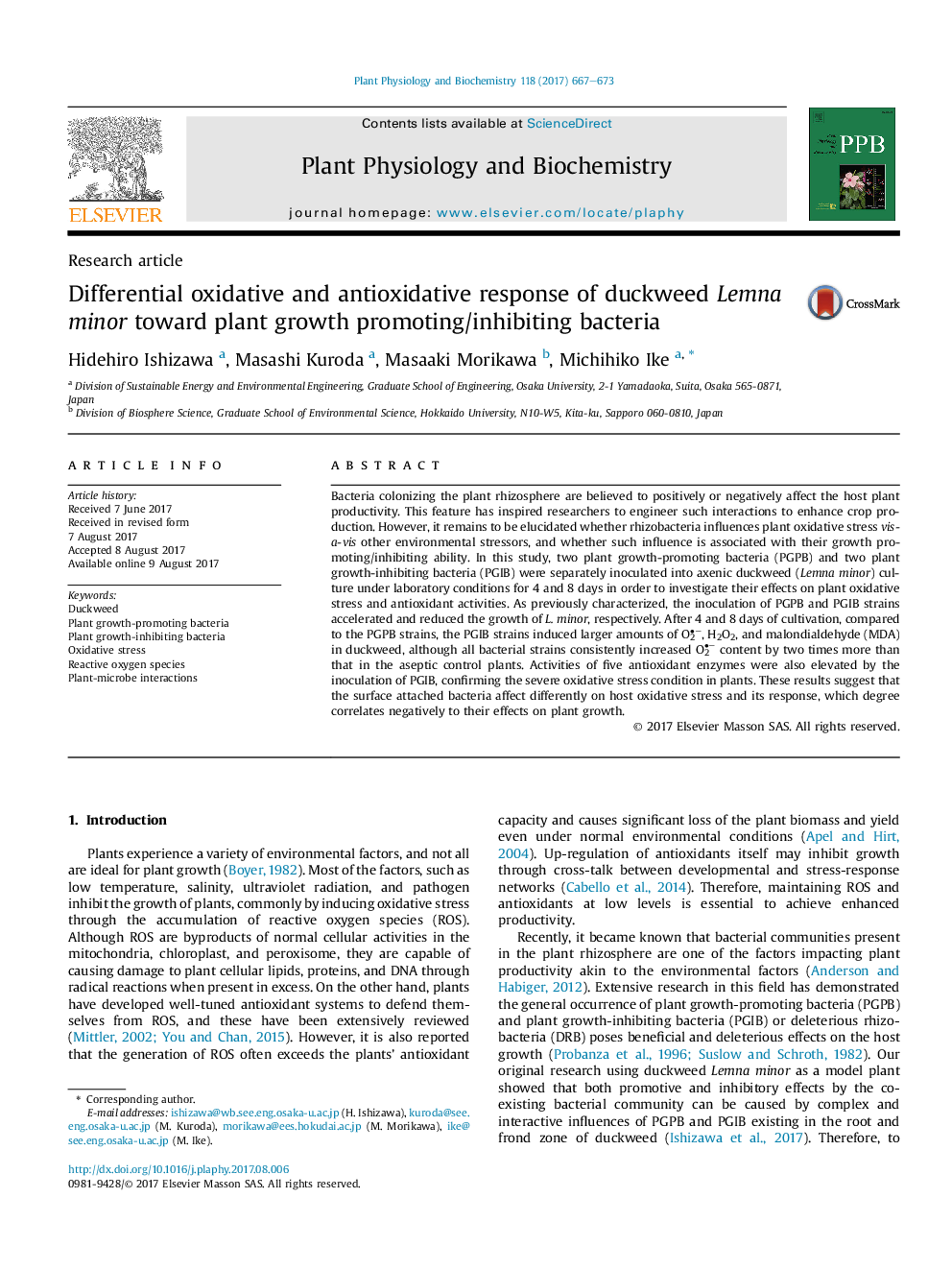| کد مقاله | کد نشریه | سال انتشار | مقاله انگلیسی | نسخه تمام متن |
|---|---|---|---|---|
| 5515483 | 1541903 | 2017 | 7 صفحه PDF | دانلود رایگان |
- Four bacterial strains were co-cultivated with duckweed to assess the effects on host oxidative stress.
- Two bacterial strains promoted, and the other two strains inhibited the growth of duckweed.
- Growth-inhibiting bacteria induced higher oxidative stress levels of duckweed than growth-promoting bacteria.
- Growth-promoting bacteria also induced equal or higher oxidative stress relative to aseptic control.
- Bacteria can be a significant cause of oxidative stress similar to the other environmental factors.
Bacteria colonizing the plant rhizosphere are believed to positively or negatively affect the host plant productivity. This feature has inspired researchers to engineer such interactions to enhance crop production. However, it remains to be elucidated whether rhizobacteria influences plant oxidative stress vis-a-vis other environmental stressors, and whether such influence is associated with their growth promoting/inhibiting ability. In this study, two plant growth-promoting bacteria (PGPB) and two plant growth-inhibiting bacteria (PGIB) were separately inoculated into axenic duckweed (Lemna minor) culture under laboratory conditions for 4 and 8 days in order to investigate their effects on plant oxidative stress and antioxidant activities. As previously characterized, the inoculation of PGPB and PGIB strains accelerated and reduced the growth of L. minor, respectively. After 4 and 8 days of cultivation, compared to the PGPB strains, the PGIB strains induced larger amounts of O2
- â, H2O2, and malondialdehyde (MDA) in duckweed, although all bacterial strains consistently increased O2
- â content by two times more than that in the aseptic control plants. Activities of five antioxidant enzymes were also elevated by the inoculation of PGIB, confirming the severe oxidative stress condition in plants. These results suggest that the surface attached bacteria affect differently on host oxidative stress and its response, which degree correlates negatively to their effects on plant growth.
Journal: Plant Physiology and Biochemistry - Volume 118, September 2017, Pages 667-673
